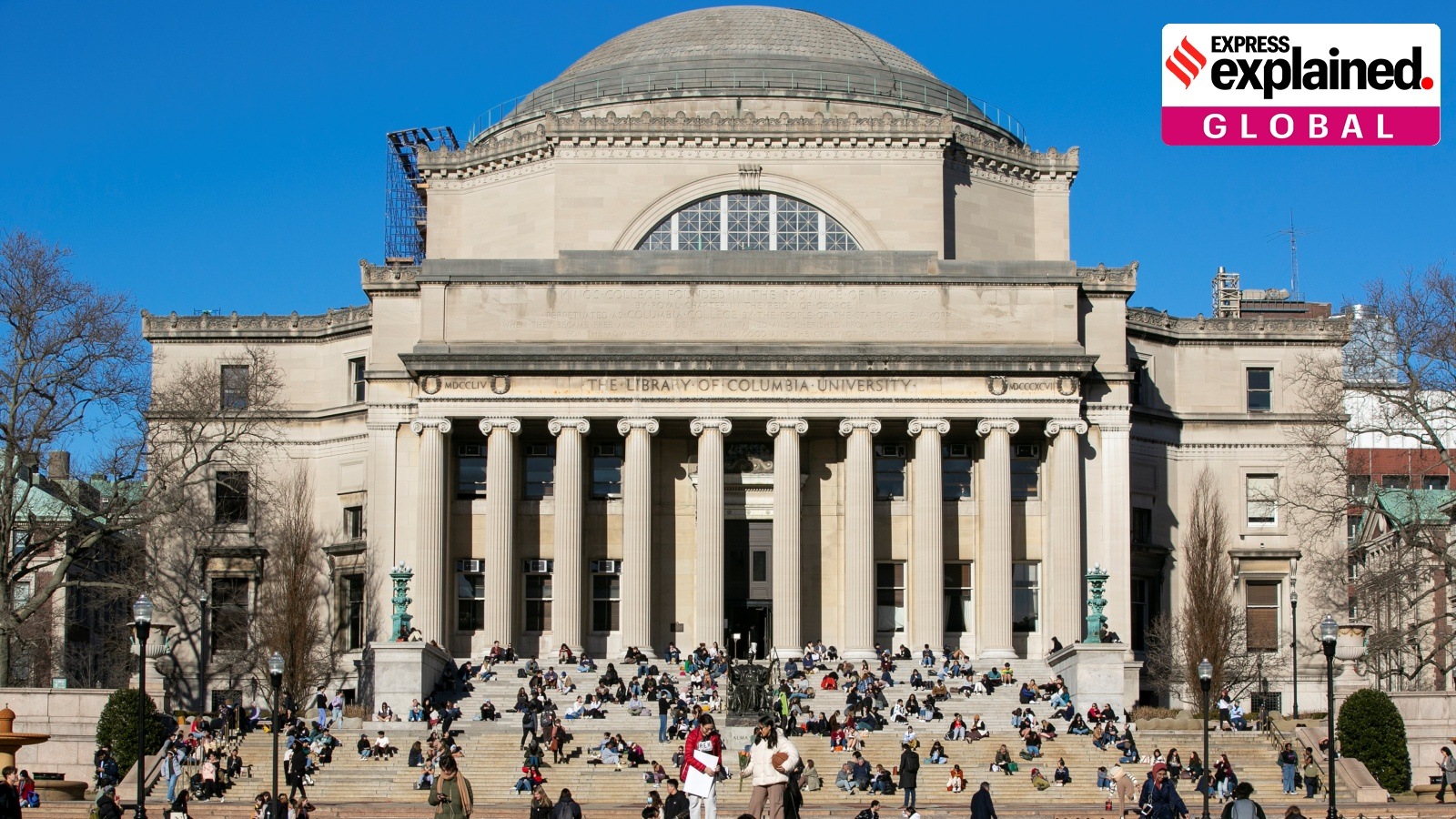What is the significance of Columbia’s $221 million settlement with Trump administration?
The Trump administration accused Columbia University of failing to protect its American students from harassment, resulting in the cancellation of $400 million in research funding
 Students sit on the front steps of Low Memorial Library on the Columbia University campus in New York City, in 2023. (Photo: AP)
Students sit on the front steps of Low Memorial Library on the Columbia University campus in New York City, in 2023. (Photo: AP)Columbia University has reached a deal with the Trump administration, and will pay $221 million to the federal government in exchange for reinstatement of federal research money that was cancelled over allegations of anti-semitism on campus.
The University has also agreed to a bunch of demands of the administration. For instance, Columbia agreed to suspend, expel, or revoke degrees of some 70 students who participated in pro-Palestinian demonstrations.
The development is a big win for the Trump administration, which has sued other universities over similar allegations. It has essentially paved a way for the administration to exert greater control over higher education, including campus activism.
What settlement has Columbia University reached?
On March 3, 2025, the Trump administration announced the review of alleged violations by Columbia University of Title VI of the Civil Rights Act, which “prohibits discrimination on the basis of race, color, and national origin in programs and activities receiving federal financial assistance”.
The review was conducted by the “multi-agency Task Force to Combat Anti-Semitism” that was announced under Trump’s Executive Order titled “Additional Measures to Combat Anti-Semitism.” This was followed by the cancellation of $400 million in grants and contracts to Columbia University on March 7, resulting in a freeze on research funding.
Columbia University was the first university to be accused of anti-semitism on campus. Other universities, like Harvard and Cornell, were given similar accusations thereafter.
On March 13, the Trump administration sent Columbia University a letter stating their demands for it to make changes to student discipline on campus and revise their admission policies. The letter stated that the University had “failed to protect American students and faculty from anti-semitic violence and harassment”.
The letter also said that the University should comply with demands like “ban masks that are intended to conceal identity” and “formalise, adopt, and promulgate a definition of anti-semitism.”
The University agreed to these demands in the week that followed, when the government refused to negotiate on the $400 million restrictions.
Since then, Columbia has expelled dozens of students for hosting pro-Palestine protests, including cases of deportation and cancellation of student visas. Around 180 researchers were also laid off due to the funding restrictions the university faced.
Columbia obtains approximately $1.3 billion in federal research funding each year, and the University stated that it would have faced significant jeopardy had it stayed on the administration’s list of excluded institutions.
Therefore, the University decided to settle the case by paying $200 million over three years to the federal government and $21 million to settle the investigations by the US Equal Employment Opportunity Commission. The agreement has led to the reinstatement of a vast majority of restricted federal grants and shows the university’s “broader commitment to combating antisemitism,” according to the Acting President, Claire Shipman.
Why is this significant?
The Columbia University settlement marks a significant moment in the Trump administration’s broader strategy to regulate university governance through federal enforcement mechanisms. It is the first University to formally comply with the administration’s demands related to alleged antisemitism on campus. This compliance sets a precedent for other institutions facing similar federal scrutiny.
Harvard University, in stark contrast, chose to resist the administration’s demands and instead filed a lawsuit against them. The University argued that the administration was attempting to overreach by exerting undue influence over its academic decision-making processes, threatening the institution’s long-standing commitment to academic independence and integrity.
The Columbia case and other government accusations reflect a growing trend of federal intervention in higher education, where funding is used as leverage to enforce political and administrative compliance. With Columbia’s decision to settle, other universities may come under pressure to choose between legal resistance and financial risk. The outcome positions the federal government as a more assertive actor in shaping campus policy, particularly around issues of protest, speech, and civil rights enforcement.
- 01
- 02
- 03
- 04
- 05






































